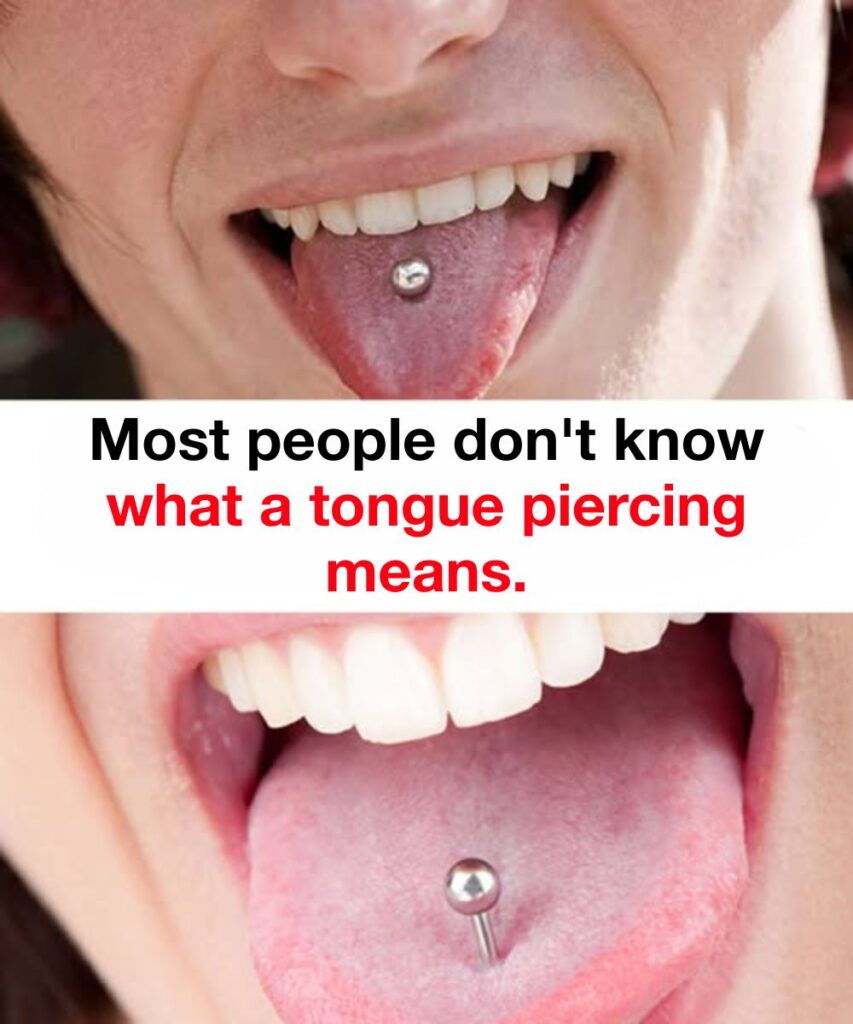
Tongue Piercings: Similarities and Differences in Meaning for Men and Women
For centuries, tongue piercings have been more than just a flash of metal when you smile. They’ve moved from sacred tribal traditions to a modern, edgy style choice that’s impossible to ignore. While the piercing itself looks the same, the meaning people attach to it can shift depending on whether it’s worn by a man or a woman.
Let’s explore the shared symbolism, the subtle (and not-so-subtle) differences, and the cultural layers behind this bold accessory.
Shared Meanings for Men and Women
1. A Statement of Self-Expression
For both genders, a tongue piercing can feel like wearing your personality right where everyone can see it. It’s a small but powerful way to say, “I’m not afraid to be different.” Whether paired with tattoos or just a confident smile, it’s an unmistakable signature of individuality.
2. Breaking the Rules (In Style)
Even today, tongue piercings still carry a whiff of rebellion. Choosing one can be a direct nod to living life on your own terms—regardless of what’s considered “normal” in your culture.
3. Pure Aesthetic Appeal
Sometimes, it’s simply about looking good. From sleek silver studs to colorful gems, tongue jewelry can add a subtle sparkle that turns heads every time you laugh or speak.
4. A Feeling of Empowerment
There’s something liberating about making your own choices about your body. For many, getting a tongue piercing is about control, confidence, and proudly owning your style.
Differences in Meaning Between Men and Women
1. Sexual Connotations and Stereotypes
Here’s where things get tricky. For women, a tongue piercing is sometimes—unfairly—linked with flirtation or sensuality. For men, the same piercing might be seen as adventurous or daring. These are stereotypes, not truths, but they still shape public perception.
2. Cultural Judgment
In some communities, women with tongue piercings face criticism tied to outdated “purity” expectations. Men, however, may have their piercings viewed as part of a rugged or edgy image. The same piece of jewelry, but a completely different social lens.
3. Different Motivations
While both men and women use tongue piercings for self-expression, women may lean toward aesthetic harmony—matching jewelry with outfits or makeup—while men may be drawn to the thrill or statement factor.
4. Subcultural Symbolism
Within punk, goth, or LGBTQ+ spaces, a tongue piercing might carry different meanings depending on gender—from a badge of sexual openness to a mark of solidarity or rebellion.
The Bottom Line
Whether worn by a man or a woman, a tongue piercing can say, “I’m confident. I’m me.” But culture, stereotypes, and personal style can shape how that message is received. At the end of the day, the truest meaning belongs to the person wearing it—not the assumptions of strangers.